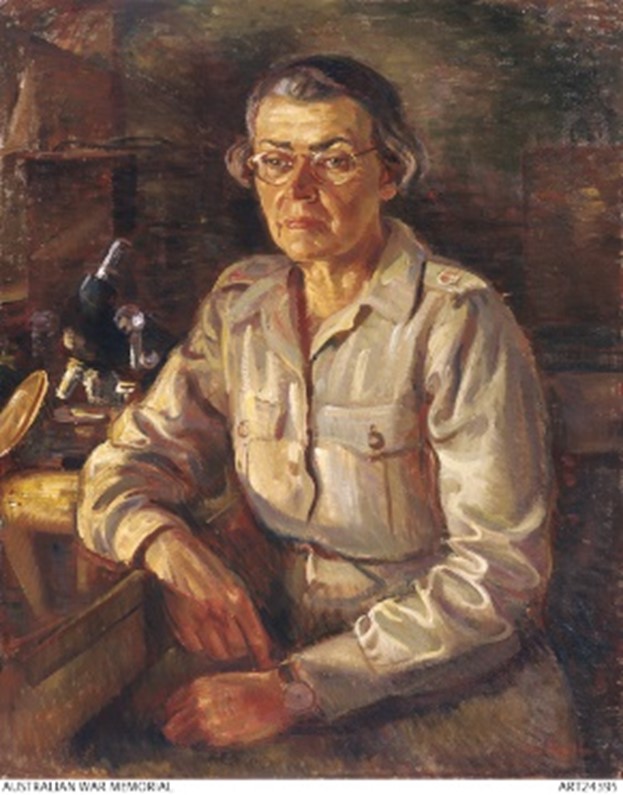As ANZAC Day approaches, we hear the remarkable story of Major Josephine Mackerras who was turned down for a Member of the British Empire award despite being recommended for the commendation for making significant scientific efforts during the Second World War.
In recent years, much has been written about the brave and dedicated nurses who served in the Australian Imperial Force in two wars. Less has been written about female medical officers, largely because female doctors were not commissioned in the Australian Army in the First World War. But in the Second World War it was different. Twenty-three female doctors were enlisted into the Royal Australian Army Medical Corps during the war, and although none of then served overseas, they made a vital contribution to the maintenance of the health of soldiers on the home front.

Paramount among these remarkable women was Major Josephine Mackerras. Daughter of the famous medical researcher Dr Thomas Bancroft, Josephine was educated in Brisbane and graduated from the University of Sydney School of Medicine in 1924. In 1930, she joined the Council for Scientific and Industrial Research in Canberra as an entomologist. She was commissioned in November 1941 and, in November 1943, was posted to the Land Headquarters Malaria Research Centre in Cairns. There she bred a stock of Anopheles species mosquitoes, which were infected with malaria and used to infect volunteers in the course of drug evaluations and trials. This work substantially helped to reduce the incidence of malaria in soldiers in the field.
At the end of the war, she was recommended to be made a Member of the British Empire. The citation read, “Few women can have made a greater contribution to the Allied War effort”. The recommendation was supported by the Deputy Director General of Medical Services, Brigadier Joseph Steigrad. General Blamey, however, declined to endorse the recommendation and no award was made. Despite similar recommendations, none of the female medical officers in the Royal Australian Army Medical Corps received recognition. This is hard to understand when we compare the numerous Australian Army nurses who received decorations in the course of the war.
In March 1946, Josephine Mackerras returned to her research into insect-born diseases. She contributed over 80 papers to the scientific literature. She was appreciated and appropriately acknowledged by her colleagues in the scientific community, if not by the Commander in Chief. Josephine died in 1971.
Colonel Robert Likeman OAM CSM (Retd) served in the Australian Army for 24 years, with his final posting as Director of Army Health in Canberra.
This story and more are explored in Colonel Robert Likeman’s new book The Inevitable Hour, which is the sixth and final volume in his monumental series, Australian doctors at war. It covers the period from the conclusion of the Kokoda Campaign through to the British Commonwealth Occupation of Japan in 1946. Available from Woodslane Publishing (www.woodslane.com.au).
The statements or opinions expressed in this article reflect the views of the authors and do not necessarily represent the official policy of the AMA, the MJA or InSight+ unless so stated.
Subscribe to the free InSight+ weekly newsletter here. It is available to all readers, not just registered medical practitioners.
If you would like to submit an article for consideration, send a Word version to mjainsight-editor@ampco.com.au.

 more_vert
more_vert